
Find Help
More Items From Ergsy search
-

What is Gaslighting?
Relevance: 100%
-
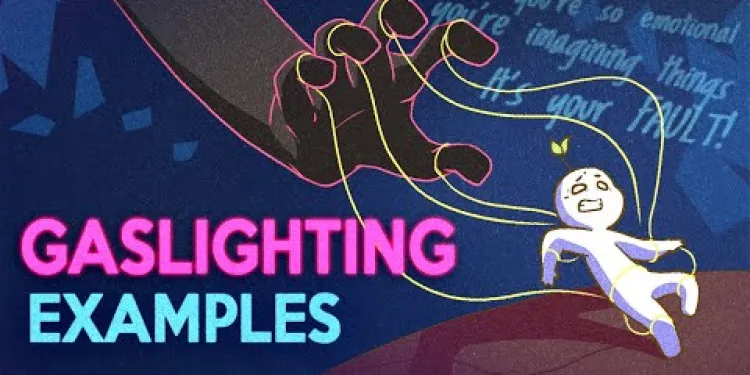
10 Examples of What Gaslighting Sounds Like
Relevance: 86%
-
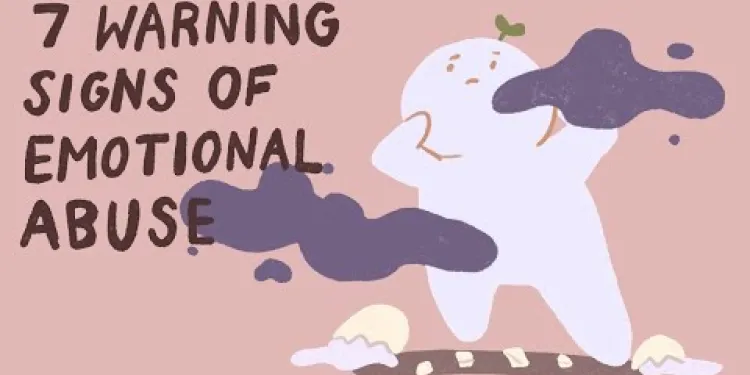
7 Warning Signs of Emotional Abuse
Relevance: 33%
-
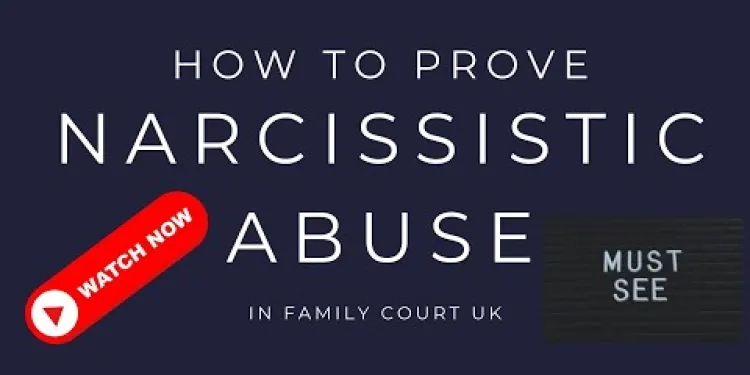
How To Prove Narcissistic Abuse In Family Court UK
Relevance: 28%
-
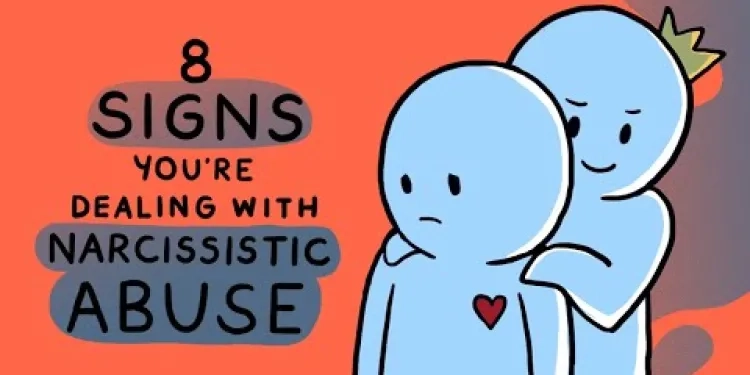
8 Signs You Are Dealing with Narcissistic Abuse
Relevance: 28%
-
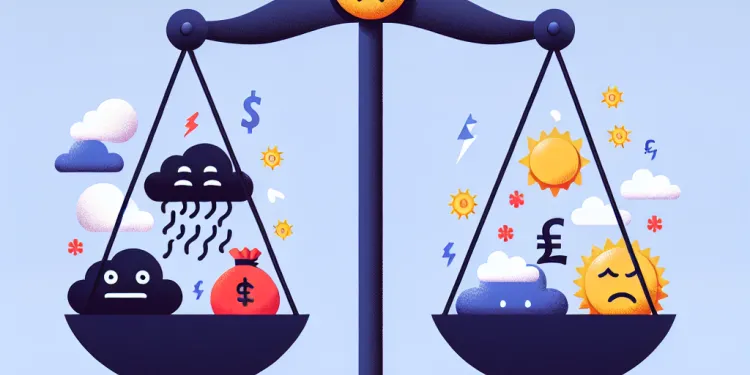
What role do unhealthy dynamics play in causing depression?
Relevance: 12%
What is Gaslighting?
Gaslighting is a form of psychological manipulation that seeks to make a person or a group of people question their own perceptions, memories, or beliefs. This insidious tactic can erode their sense of reality, self-confidence, and mental well-being, leaving them confused and dependent on the gaslighter for a sense of truth.
The Origins of Gaslighting
The term "gaslighting" originates from the 1938 play and 1944 film adaptation "Gaslight," where a husband manipulates his wife into doubting her sanity by making small changes in her environment and insisting she is mistaken or imagining things when she notices. This term has since evolved to describe similar manipulative behaviours in various contexts.
Recognising Gaslighting
Gaslighting can be challenging to identify because its tactics are often subtle and insidious. Common signs include: persistent denial of facts, even when there is evidence; trivialising the victim's feelings or experiences; dismissing their concerns as irrational; and attempting to confuse or distract them from the truth. It often involves the gaslighter projecting their own problems onto the victim, shifting blame and control.
The Impact of Gaslighting
The effects of gaslighting can be profound and damaging. Victims may experience increased feelings of anxiety, depression, and isolation. Their self-esteem can deteriorate, as they begin to mistrust their own perceptions and judgments. Over time, this can lead to a loss of autonomy and the ability to make decisions independently, as the victim increasingly relies on the gaslighter for reality-checking.
Addressing Gaslighting
Confronting gaslighting involves recognising the behaviours and reclaiming one's reality. It can be helpful to document instances of gaslighting, seek external perspectives from trusted friends or mental health professionals, and establish clear boundaries. In the UK, resources like counselling services and support groups can provide valuable assistance. Ultimately, reclaiming one's narrative and building a support network are crucial steps towards healing and recovery from psychological manipulation.
What is Gaslighting?
Gaslighting is a psychological manipulation technique where a person or group makes another individual doubt their own perceptions, memories, or understanding of reality. This insidious form of emotional abuse aims to gain power and control over the victim by undermining their confidence and sense of reality.
The Origins of Gaslighting
The term "gaslighting" originates from the 1938 British play "Gas Light," and its 1944 film adaptation. In the story, a husband attempts to make his wife believe she is going insane by subtly dimming the gas lights in their home, and then denying any change in the lighting when she points it out. This classic motif of manipulation and deceit has since become synonymous with the tactics used in gaslighting.
Recognising Gaslighting Techniques
Common techniques of gaslighting include lying and denying things they previously said, dismissing or trivialising the victim's feelings, questioning the victim's memory, and projecting their own faults onto the victim. A gaslighter may also isolate the victim by convincing them that others are unreliable, causing the victim to rely solely on the gaslighter for validation.
The Impact of Gaslighting
Gaslighting can have severe psychological effects on victims, leading to anxiety, depression, and a loss of self-confidence. The victim may begin to question their own sanity, feeling trapped as their sense of reality erodes. Prolonged exposure to gaslighting can severely damage a person’s mental health and relationships.
Gaslighting in the United Kingdom
In the UK, awareness of gaslighting is growing, with campaigns and literature aimed at educating the public about the signs and effects of this form of abuse. Resources are available through organisations like Women's Aid and Mind, providing support and guidance to those affected by gaslighting. Additionally, the UK legal system is recognizing emotional abuse, including gaslighting, as a serious issue, with laws in place to protect victims under the Domestic Abuse Act 2021.
What is Gaslighting?
Gaslighting is when someone tries to make you doubt what you see, remember, or believe. This can make you feel confused and unsure about what is real. The person doing this wants you to rely on them to know what is true.
The Origins of Gaslighting
The word "gaslighting" comes from an old play and a movie called "Gaslight." In the story, a husband tricks his wife into thinking she is going crazy by changing small things in their home and telling her she is imagining it. We now use "gaslighting" to describe similar tricks people use to make someone doubt themselves.
Recognising Gaslighting
Gaslighting can be hard to notice because it can be sneaky. Some signs are: when someone says something didn't happen even if it did; when they say your feelings are silly; when they tell you your worries don't make sense; or when they try to confuse you. The person gaslighting often blames you for things and tries to take control.
The Impact of Gaslighting
Gaslighting can hurt a lot. People might start to feel anxious, sad, and alone. They can lose confidence and may not trust what they think or feel. It can become hard to make decisions without asking the person gaslighting them what is true.
Addressing Gaslighting
To stop gaslighting, you need to notice it is happening and stand up for yourself. It helps to write down when it happens, talk to friends or a counselor, and set clear rules about how you want to be treated. In the UK, you can find help from counseling services and support groups. It's important to find people who support you and remember your own story. This can help you feel better and recover from gaslighting.
What is Gaslighting?
Gaslighting is when someone tricks another person into thinking they are wrong about things they see, remember, or believe. It is a way of making the person doubt themselves. The person who does this wants to have power over the other person and make them feel confused and unsure.
The Origins of Gaslighting
The word "gaslighting" comes from a play called "Gas Light" from 1938, and a movie made in 1944. In the story, a man tries to make his wife think she is going crazy. He changes the lights in their home to be dimmer but tells her nothing has changed. This story shows how someone can trick another person to make them feel confused. That's why it's called gaslighting.
Recognising Gaslighting Techniques
Gaslighting can look like this: Someone lies and says they did not say something when they did. They might ignore or make fun of how the other person is feeling. They could make the other person question their memory. They might even blame the person for things they did wrong. A gaslighter might also tell the person not to trust anyone else, so the person only listens to the gaslighter.
The Impact of Gaslighting
Gaslighting can make people feel very upset and worried. It can make them feel sad and lose confidence. The person might start to think they are going crazy because they feel so mixed up. Over time, gaslighting can hurt a person’s mind and how they get along with other people.
Gaslighting in the United Kingdom
In the UK, people are learning more about gaslighting. There are groups and books to help everyone understand it better. If someone is dealing with gaslighting, they can get help from places like Women's Aid and Mind. These groups offer support and advice. Also, in the UK, the law now understands that gaslighting is serious. There are rules to protect people from it, thanks to the Domestic Abuse Act 2021.
Frequently Asked Questions
What is gaslighting?
Gaslighting is a form of psychological manipulation where a person attempts to make another person doubt their own perceptions, memories, or understanding of events.
Where does the term 'gaslighting' come from?
The term 'gaslighting' originates from the 1938 play 'Gas Light' and its film adaptations, where a husband manipulates his wife into thinking she is going insane by dimming the gas lights and denying it.
What are some common signs of gaslighting?
Common signs include feeling confused about events, questioning your memory, second-guessing yourself, feeling like you're being too sensitive, or often apologising without understanding why.
Why do people gaslight others?
People may gaslight others to gain control over them, protect themselves, or avoid responsibility. It's often rooted in a desire for power or avoidance of accountability.
Can gaslighting occur in the workplace?
Yes, gaslighting can occur in the workplace. It can happen when a colleague or superior uses deceptive tactics to make an employee doubt their professional capabilities or understanding of work situations.
How does gaslighting differ from lying?
While lying involves saying something that is untrue, gaslighting includes denying reality, manipulating the truth, and making someone question their perception or memories.
Is gaslighting considered abuse?
Yes, gaslighting is considered a form of emotional and psychological abuse as it undermines an individual's sense of reality, leading to significant emotional distress.
Can gaslighting happen in friendships?
Gaslighting can definitely happen in friendships, where one friend manipulates another into questioning their own thoughts, feelings, or memories for power or control.
What impact can gaslighting have on mental health?
Gaslighting can lead to anxiety, depression, low self-esteem, and a lack of trust in one's own perceptions or decisions, potentially causing long-term trauma.
How can one deal with gaslighting?
Dealing with gaslighting involves recognising the signs, documenting instances, trusting your perceptions, seeking support from trusted individuals, and if possible, confronting the gaslighter or removing yourself from the situation.
Is gaslighting illegal in the UK?
While gaslighting itself is not specifically mentioned as illegal, behaviours associated with it can fall under offences such as coercive control, which is illegal in the UK under domestic abuse laws.
What should you do if you suspect someone is being gaslighted?
If you suspect someone is being gaslighted, offer your support, listen to them, validate their feelings, and encourage them to seek professional help or resources.
Can therapy help someone recover from gaslighting?
Yes, therapy can be very helpful in recovering from gaslighting. Therapists can offer support, help rebuild one's self-esteem, and assist individuals in understanding and processing their experiences.
Are there online resources for learning more about gaslighting?
Yes, there are many online resources, including mental health websites and support groups, where you can learn more about gaslighting and find strategies for coping and recovery.
How can I ensure I’m not accidentally gaslighting someone?
To avoid accidentally gaslighting, always communicate openly, respect others' perceptions and feelings, acknowledge when you're wrong, and encourage honest and transparent interactions.
What is gaslighting?
Gaslighting is when someone makes you doubt what you feel or remember. They might say things that make you feel confused or unsure about what is true.
Here are some tips to help:
- Talk to someone you trust about your feelings.
- Write down what happens to help remember.
- Use a calendar or diary to keep track of events.
Gaslighting is when someone tries to trick you into not trusting what you see, remember, or know about things that happen.
What does 'gaslighting' mean and where does the word come from?
The word 'gaslighting' comes from a play called 'Gas Light' from 1938. In the story, a man tries to make his wife believe she is going crazy. He does this by making the gas lights in their house dimmer and then saying it didn't happen.
What are some common signs of gaslighting?
Gaslighting is when someone tries to make you doubt what you know is true.
Here are some signs:
- They say you didn't see or hear what you know you did.
- They tell you that you are too sensitive or making things up.
- They often change the story and deny things they said before.
- They make you feel confused or like you are always wrong.
Tip: Talk to someone you trust if you think this is happening. Writing things down can also help you remember what happened.
Some things to watch out for are:
- Feeling mixed up about what's happening.
- Not sure if you remember things right.
- Thinking you might be wrong a lot.
- Feeling like you are too sensitive.
- Saying sorry a lot and not knowing why.
It can help to talk to someone you trust or write down your thoughts to see them clearly.
Why do people make others doubt themselves?
Some people make others feel confused about what is real or what they remember. This is called "gaslighting". They do it to feel in control or to hide the truth.
Ways to get help:
- Talk to someone you trust, like a friend or family member.
- Write down what happens to help you remember.
- Use a feelings chart to understand your emotions better.
Some people might try to confuse others to feel in charge, keep themselves safe, or avoid blame. They often want power or don't want to get in trouble.
Can someone play tricks on you at work?
Yes, someone at work might try to make you feel confused or doubt yourself. This is called gaslighting. It can happen when a boss or co-worker says things that make you question what is real. If this happens, talk to someone you trust or write down what really happened to help you feel sure about yourself. You can also ask for help from a support group or counselor.
Yes, gaslighting can happen at work. It is when a co-worker or boss tricks someone into doubting their own skills or understanding of their job.
What is the difference between gaslighting and lying?
Gaslighting: When someone tells you something untrue to make you doubt what you know.
Lying: When someone tells something untrue just to hide the truth.
Here are some tools and ideas to help:
- Talk to someone you trust. They can help you understand.
- Write down what you remember. It can help you feel sure of yourself.
- Use simple checklists to keep track of facts.
Lying means saying something that is not true. Gaslighting is when someone tells lies and makes you doubt what really happened. They try to make you think your memories or what you see are wrong.
Is gaslighting a type of abuse?
Gaslighting is when someone makes you doubt yourself. They might say things to make you feel confused or unsure. This is not okay. It is a type of abuse.
If you feel like this is happening to you, it's important to talk to someone you trust. You can also find support from a teacher, family member, or a helpline to help you feel safe and supported.
Yes, gaslighting is a type of emotional and mental abuse. It makes a person doubt what is real, which can make them feel very upset and confused.
What can help:
- Talk to someone you trust about how you feel.
- Write down what happens to you each day. This might help you remember what is real.
- Consider asking a counselor for help.
Can friends make you doubt yourself?
Gaslighting can happen in friendships. It is when one friend lies to make another friend doubt what they think, feel, or remember. This is done to have power over them.
How does gaslighting hurt mental health?
Gaslighting can make you feel confused and upset. It can hurt your feelings and make you sad or worried.
If someone gaslights you, it's okay to ask for help. You can talk to a friend or a counselor. You can also write down what happens to remember better.
Remember, you deserve to feel good and safe.
Gaslighting is when someone tries to make you doubt what you think or feel. It can make you feel worried, sad, and not very confident. You might find it hard to trust yourself. This can really hurt you for a long time.
What can you do if someone is making you feel confused or unsure?
Here is how to handle gaslighting:
- Learn to see the clues. Gaslighting is when someone makes you doubt your thoughts.
- Write down what happens. This helps you remember what is real.
- Trust your own thoughts and feelings. You know what you see and feel.
- Talk to people you trust. They can help you understand what is happening.
- If you can, talk to the person who is gaslighting you. Or try to leave the situation.
Is gaslighting against the law in the UK?
Gaslighting means someone is trying to trick you to make you doubt what you know is true.
In the UK, making someone feel scared or upset on purpose can be against the law. This is called emotional abuse.
If someone is trying to confuse you or make you feel bad about yourself, tell a trusted adult or contact a helpline for support.
Gaslighting is not a crime on its own. But, it can be part of other bad actions. These actions, like controlling someone in a mean way, are against the law in the UK. These laws are to protect people from harm at home.
What to Do if You Think Someone is Being Lied To
If you think someone is being lied to a lot and made to feel confused:
- Talk to them and tell them you care.
- Listen to what they say without judging.
- Tell them it is not their fault they feel this way.
- Help them find someone they trust to talk to, like a family member or teacher.
- Suggest they keep a diary of what happens to help remember things.
- Ask an adult for help if you are unsure what to do.
If you think someone is being tricked or confused by another person, you can help them by doing a few things:
- Be there for them.
- Listen to what they say.
- Let them know their feelings are real and matter.
- Suggest they talk to a counselor or someone who can help.
Can talking to a therapist help if someone is being tricked or confused by another person?
Yes, talking to a therapist can help a lot.
Here is how a therapist can help:
- A therapist can listen to you and understand your feelings.
- They can teach you ways to feel stronger and more confident.
- They can help you see what is really happening and know what is true.
If you feel lost or unsure, a therapist can be a good friend to talk to.
There are some other things that can help too:
- Write down what happens, so you do not forget what is true.
- Talk to friends or family you trust about how you feel.
Remember, it is not your fault and you deserve to feel safe and happy.
Yes, talking to a therapist can really help if someone has been treated badly. Therapists can support you, help you feel better about yourself, and help you understand what happened.
Can I find help online to learn about gaslighting?
Yes, you can find help online to learn about gaslighting.
Here are some ways to learn:
- Watch videos about gaslighting on YouTube.
- Read simple articles on websites.
- Ask an adult to help you find good resources.
Some tools can help you understand better:
- Use online dictionaries to check words you don't know.
- Use text-to-speech tools to listen to the information.
Yes, there are many websites and online groups that can help you learn about gaslighting. They can also give you tips on how to feel better and deal with it.
How can I make sure I'm not confusing or hurting someone with my words?
To stop yourself from gaslighting by mistake, try these steps:
- Talk clearly and openly.
- Respect what others feel and see.
- Say sorry if you are wrong.
- Tell the truth and listen to others.
Helpful Tools:
- Use a feelings chart to understand emotions.
- Try role-playing to see things from another person's view.
Useful Links
This website offers general information and is not a substitute for professional advice.
Always seek guidance from qualified professionals.
If you have any medical concerns or need urgent help, contact a healthcare professional or emergency services immediately.
Some of this content was generated with AI assistance. We’ve done our best to keep it accurate, helpful, and human-friendly.
- Ergsy carfully checks the information in the videos we provide here.
- Videos shown by Youtube after a video has completed, have NOT been reviewed by ERGSY.
- To view, click the arrow in centre of video.
- Most of the videos you find here will have subtitles and/or closed captions available.
- You may need to turn these on, and choose your preferred language.
- Go to the video you'd like to watch.
- If closed captions (CC) are available, settings will be visible on the bottom right of the video player.
- To turn on Captions, click settings .
- To turn off Captions, click settings again.
More Items From Ergsy search
-

What is Gaslighting?
Relevance: 100%
-

10 Examples of What Gaslighting Sounds Like
Relevance: 86%
-

7 Warning Signs of Emotional Abuse
Relevance: 33%
-

How To Prove Narcissistic Abuse In Family Court UK
Relevance: 28%
-

8 Signs You Are Dealing with Narcissistic Abuse
Relevance: 28%
-

What role do unhealthy dynamics play in causing depression?
Relevance: 12%

